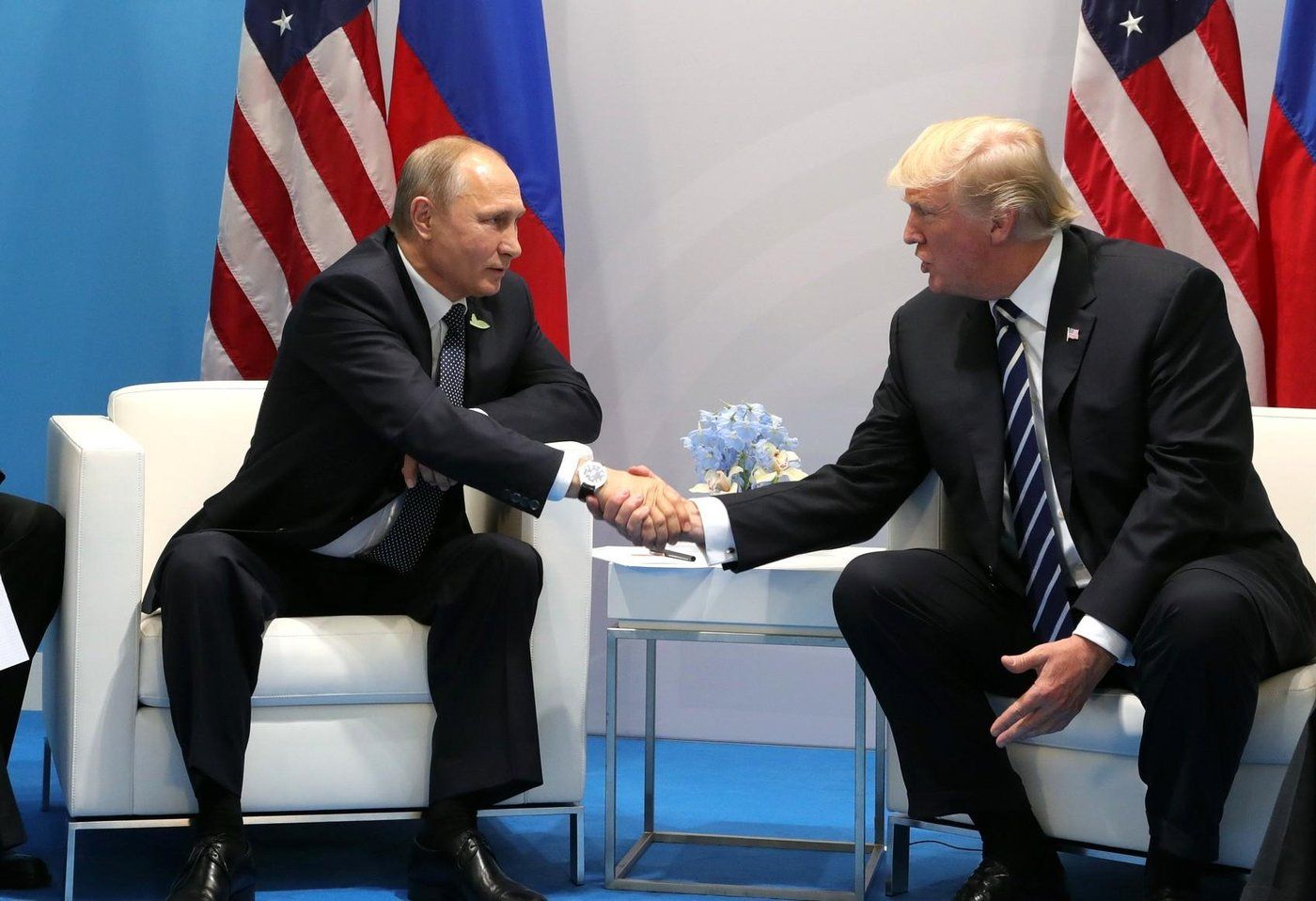US president-elect Donald Trump has repeated time and again -- both during the presidential election campaign and after his election – that he wants to end the Russia-Ukraine war.
He has claimed that he wants to end the war even before he assumes office on January 20, 2025. He has even boasted that he will end the war in one day or 24 hours.
Despite Trump’s best intentions and endeavors, including a concrete and actionable peace plan, it will be extremely difficult, if not impossible, to end the war in Ukraine -- let alone in one day.
Trump thinks that the Russia-Ukraine war is not in America’s interest because the US provides tens of billions of taxpayer dollars to aid Ukraine’s war effort.
Trump is a businessman and is a zero-sum strategist. He believes he can achieve the best solutions, deals and outcomes in the world.
However, he fails to understand that the Russia-Ukraine war is in fact in the American interest.
The war has continued to weaken Russia’s material capabilities. The longer the war continues, the weaker Russia—arch opponent of US hegemony and the US-led Western liberal order—becomes.
Although the war has strengthened the China-Russia strategic partnership which is now strongest since the end of the Cold War, the US and its allies are stronger in material terms.
A protracted war serves US interests.
The European Union, especially France, Germany, Poland and the Baltic Republics also believe that a weak, especially a militarily weakened, Russia is in their best interests.
Trump’s professed goal of ending the Russia-Ukraine war is also contrary to the interests of the US ‘deep state’.
If the deep state is able to convince Trump regarding the material especially economic gains that accrue to the US with respect to job creation and arms sales by US corporations and the benefit to US oil producers by targeting the Russian economy (not to say the revitalization of the NATO), then Trump may decide to back Ukraine and prolong the war.
However, Trump also harbors ambitions of winning the Noble Peace Prize by ending the Russia-Ukraine war.
He fervently expressed his desire for the prize throughout his first presidency. He has been nominated four times but has failed to win the prestigious commendation. He wants to join the esteemed list of US presidents (such as Theodore Roosevelt, Woodrow Wilson, Jimmy Carter and, most recently, Barack Obama) and the heads of states/governments from other countries who have won the Noble Peace Prize.
It is very likely that his personal ambition and personal characteristics will overcome the reservations of the deep state about ending the war.
Nonetheless, Trump faces huge obstacles in ending the Russia-Ukraine war.
For that, a compromise needs to be reached not only between Russia and Ukraine, but also between the US-led West and Russia. President Vladimir Putin perceives the Russia-Ukraine war as a proxy-war between Russia and the West.
Trump has proposed a peace plan to end the war. He has not revealed the details of his peace plan because he believes that the plan will be unsuccessful if it loses the element of surprise.
However, some ideas for a truce have been floated publicly by Trump and his team.
They include delaying Ukraine’s NATO membership by 20 years, ensuring Russia does not invade Ukraine by creating a demilitarized zone spanning nearly 1,290 kilometers (800 miles) with the burden falling on the European countries to police and maintain peace, Ukraine ceding some territory occupied by Russia including parts of Zaporizhzhia, Kherson, Donetsk and Luhansk, the US agreeing to arm Ukraine provided Kyiv agrees to participate in peace talks with Moscow, and some sanctions relief for Russia for participating in the peace negotiations.
Both Russia and Ukraine are exhausted and want to strike a peace deal but on their own terms. A ceasefire which does not address the drivers of the war will not lead to lasting peace.
In late December 2024, Moscow had also dismissed Trump’s peace overtures. Even Ukraine’s delayed membership of NATO is a non-starter for Putin.
The Kremlin wants Ukraine to be either neutral or in Russia’s sphere of influence. Additionally, Putin does not want European troops or peacekeepers in Ukraine.
Zelensky too has reservations against the peace plan.
Initially, he was reluctant to give up on Ukrainian territory occupied by Russia. Now he is willing to compromise on this.
He might even be willing to forgo Ukraine’s membership of NATO. But what Zelensky or any other Ukrainian leader will not compromise on is Ukraine’s security. Kyiv needs assurance that Russia will not invade Ukraine again.
This implies that the West must provide Ukraine with the means to defend itself against Russian aggression or offer bilateral security guarantees.
A well-armed Ukraine and Western security guarantees for Ukraine are not in Russia’s interest.
Both Trump and Putin are egoistic leaders. Putin may play hardball but if it hurts Trump’s ego, it is very likely that he will increase support for Ukraine including imposing more sanctions on Russia.
This, in conjunction with increased European support for Ukraine, is the worst-case scenario for Russia, something Putin will be keen to avoid.
If Zelensky forgoes the Ukrainian territory occupied by Russia as part of a peace deal or ceasefire, he might be forced to demit office or lose the next election.
A new leader may not be keen on a peace deal, reflecting the public opinion in Ukraine and its military, despite Ukraine’s constrained military capabilities. Even Putin may change track once Russia rebuilds its military capabilities.
Crystal gazing, however, is extremely difficult when there are too many uncertainties and variables.
But if Trump can end the war and bring lasting peace, it is very likely that he will be fifth time lucky and receive the Noble Peace Prize that he fervently desires.
(The author is Associate Professor at the School of International Relations and Public Affairs, Shanghai International Studies University. This article was originally published under Creative Commons by 360info)

